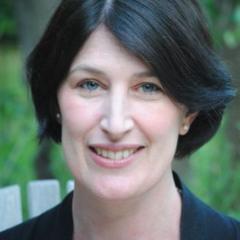
Volunteer of the Month: Cantor Kerith Spencer-Shapiro
Kerith is a graduate of HUC-DFSSM 2003. She is excited to begin her new position as cantor of University Synagogue in Los Angeles as of July 2014.
In what capacity have you volunteered for the ACC?
I have volunteered in many areas over the past seven years. In the recent past I served as Vice President of Membership and External Partnerships. I am currently the Chairperson of the Committee on Ethics & Appeals and I’m also a member of the Strategic Planning and Visioning committee.
What have you found most rewarding about doing volunteer work?
The ACC has given a lot of support to me and my cantorial colleagues. I believe in what the ACC stands for, and therefore it’s incredibly rewarding to give back to an organization that promotes values that are in alignment with my own. For example, one of the programs I worked on was the Campership Project, which raised funds for scholarships for kids to go to camp. It let children and their families know that cantors care about their formative Jewish experiences in a tangible way. I was proud to be a part of that effort.
How did you get involved in volunteer work? Did you ‘raise your hand’ or did someone ask you?
I came forward and volunteered. I’ve always enjoyed going to conventions. I like being with colleagues and experiencing all of the learning opportunities we have, and that inspired me to reach out the ACC leadership. The first thing I did was take part in the Social Justice Committee in its formative years.
What is the best part about being a Cantor? What do you enjoy?
It’s the constellation of everything that we get to do. I’d be really bored in most traditional jobs. Being able to bounce back and forth between working with people of all ages, visiting people who are sick, teaching, engaging in study, singing, and performing: having that mix of activities as part of my daily experience is the best thing about being a cantor. It’s not mono-focused. There is great variety in what we get to experience as part of our careers. There is work that is spiritually focused inward both with the congregation, and for myself as a Jewish leader; and there’s work that’s focused outward. That’s the most exciting thing for me.
What influenced you to become a Cantor?
I grew up in a secular, interfaith household. It’s sort of a minor miracle I became a cantor. It was a combination of interests. I love learning and teaching. I love music. I like being there for people, doing pastoral work. It’s also about an interest in social justice and interfaith work. I can’t imagine any other life work that would afford me all the amazing experiences that we get to have as cantors. It’s exciting and fulfilling.
What in your opinion is the biggest challenge facing the cantorate today and looking into the future?
The biggest challenge is preparing for the needs of future generations of Jews, before we actually know what those needs are. The landscape is changing incredibly rapidly. We need to be forward thinking, and to be there to meet people. It means getting out of the office and into the community as cantors, whether it is for our congregational community or our community-at-large. For us as the ACC, I think it means thinking about how we get the word out about what it is that cantors do. It’s still one of the best kept secrets of Reform Judaism.
Tell us one thing about yourself that you’d like us to know about you.
I played guitar and sang in a number of bands – from alt-rock to folk, and toured nationally with Rhinestone Chassis, an all-girl rockabilly band based in Minneapolis. I still have the outfits we wore, which were made especially for us.

